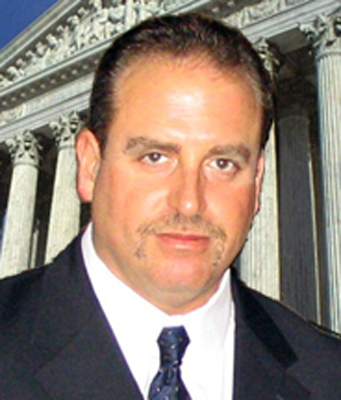 You met someone you really like, you had sex with them, soon after you discover a lesion or something else wrong on your private parts, you go to a doctor, you find out you now have herpes. (Or worse) What can you do?
You met someone you really like, you had sex with them, soon after you discover a lesion or something else wrong on your private parts, you go to a doctor, you find out you now have herpes. (Or worse) What can you do?
Well there are a lot of things that you can do. The purpose of this article is to discuss the legal remedies available to you if someone knowingly or negligently gives you a sexually transmitted disease. This body of law is called “Sexual Torts.”
Before I get started with this article, let me lay a foundation; first some sexually transmitted diseases are fatal, such as HIV, and Class C Hepatitis. Others such as Syphilis can be fatal if left untreated.
In California it is a felony punishable in California State Prison, for someone who is HIV positive to willfully expose another person to HIV through unprotected sex.
Many other States have similar laws.
Prosecutors have also prosecuted people who knowingly had unprotected sex when they knew they had HIV or Hepatitis with crimes such as criminal negligence, attempted murder, battery, etc.
If any of you out there know you have HIV or Hepatitis, you should consult with an attorney in your State before you go around having sex with someone, even if you disclose the fact that you are infected or have the disease to that person.
California’s willful exposure law basically means that even with disclosure to your partner, you are still required to use protection.
California does not want you passing your disease to other people. Most other States are the same. It is a public health issue, not a privacy issue!
Now getting back to the gist of this article; what can a person do if they are infected with an STD by another person?
In a nutshell, you can report the conduct to the police, district attorney, or health department, and you can sue them for monetary damages, and potentially punitive damages for a Sexual Tort in civil court.
I deal with civil remedies.
There are two standard civil common law causes of action that normally apply to sex torts cases, battery, and negligence.
Battery would be alleged if the person who infected you actually knew they had an STD and failed to disclose it to you.
Negligence would be used if the person who infected you should have known they had an STD.
Fraud can also be alleged if the person who infected you lied to you about actually having an STD.
There have been a couple of multi-million dollar cases involving a person who was infected with an STD by another person.
In the case of deceased movie star Rock Hudson’s same sex partner, he sued because Rock Hudson had sex with him while infected with HIV and failed to disclose it. The same sex partner won a seven figure judgment, without even proving that he got infected with HIV.
In another case, a middle aged woman was infected with genital herpes by her elderly lover. He never denied having herpes, but claimed he told her. She won a seven figure judgment in that case.
There are many problems prosecuting sexual tort cases in civil court. One of the big problems is a lawsuit is only as good as the person you are suing.
If a defendant has little or no money, it can be real difficult or impossible to actually collect a judgment. Most attorney’s including myself, will not take such a case on contingency unless there is a substantial likelihood of collecting a judgment.
Look what happened in the O.J. Simpson civil wrongful death case. The families of the decedents got a 50 million dollar civil judgment against O.J. Simpson, but were only able to collect thousands on the Judgment.
What good is a judgment unless you can collect the money on it?
Unless you get a civil judgment for battery, fraud, or another type of intentional tort, the judgment can be set aside in bankruptcy court if the defendant goes bankrupt.
There is also the statute of limitations issue. In California you have two years to file suit for battery or negligence from the time you knew or should have known, that your lover gave you an STD.
I am always willing to give free consultations to victims in these types of cases to determine if a civil lawsuit is feasible.
On a human level, I suggest that all persons get tested for STD’s before engaging in sexual conduct.
If you are a person who has an STD, you should have your partner sign a written disclosure and release before engaging in sexual conduct. As discussed above, if you have HIV, you may still not be protected.
I have seen people more protective of their cars and property than their own bodies.
You must realize that there are people out there infected with some nasty diseases. Some of them have no problem having sex with you without disclosing their diseases.
There are legal remedies available to you.
By California Personal Injury Attorney Norman Gregory Fernandez, Esq., © February 16, 2011




